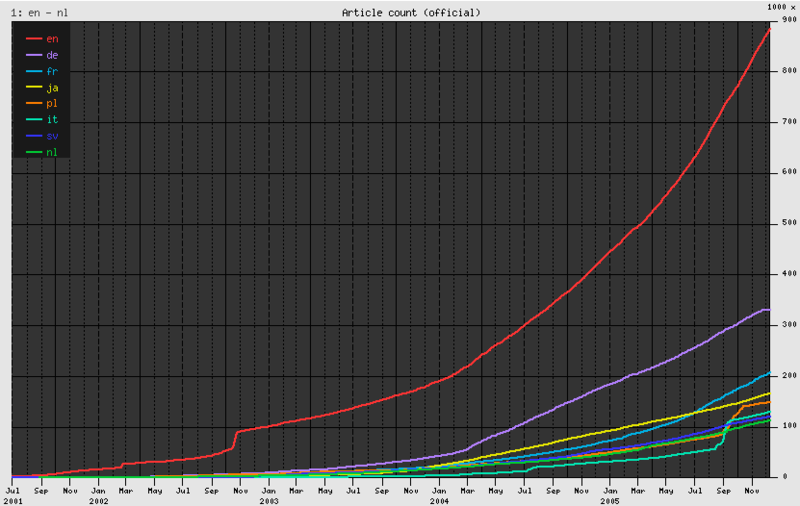Who doesn't know about Wikipedia by now? It is probably the largest collaborative free-licensed project on the web. Now a wiki is basically a web page that many people write and edit. The whole idea sounds a bit dubious really, but when the distinguished journal NATURE published an article comparing Wikipedia to Encyclopedia Britannica online, they found that Wikipedia was pretty accurate although Britannica was more accurate overall.
Wikipedia is updated by individuals who write on subjects that interest them. Because of this Wikipedia has pretty good coverage of popular culture and rapidly changing subjects such as computing.
But why does Wikipedia work better than other collaborative projects? The mission of Wikipedia is not too much different than H2G2, a MUD formed by Douglas Adams (the author of the Hitchhiker's guide to the galaxy) in April 1999. H2G2 was meant to be the repository of all human knowledge. But although H2G2 has a vibrant social community, its edited guide entries come nowhere near the 1,266,000 + articles of Wikipedia even though it is two years older.
Both Wikipedia and H2G2 have articles that are added by individuals interested in a topic regardless of their expertise. H2G2 has editors who review articles, and if they meet certain guidelines they elevate them to the edited guide. Almost all Wikipedia articles can be changed almost instantly by any contributor. This makes Wikipedia more succeptable to vandalism than H2G2 where edited articles are fixed in stone. However, this ability to change articles rapidly also means that a summary of the most recent Doctor Who episode can be up on the web the evening that it was first shown on TV.

Is this rapid change what makes wikipedia work so well? What other factors are involved in it's success. In order to find out what makes Wikipedia tick, I decided to dive right in and become a Wikipedia contributor.
The first thing that I noticed is that the Wikipedia folks are ambitious. Wikipedia is just one project of the Wikimedia foundation. Some other projects include the Wiktionary (a free dictionary and thesaurus), Wikibooks (for textbooks and manuals), Wikinews, Wikiquote, Wikimedia commons (an image and other media repository), and Wikisource (a free content library of public domain documents). They also have editions in over 150 different languages.
In the next blogs I plan to try to figure out what makes Wikipedia so successful, and to explain how to contribute to this huge free-licensed project.